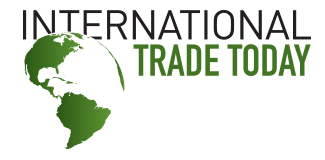Lawyer Says UFLPA Led to 'Sea Change' in Customs Compliance
An international trade lawyer with Crowell's Los Angeles office said the focus of CBP on raw materials, whether cotton in apparel or polysilicon in solar panels, requires far more visibility into supply chains than importers were used to.
"The amount of due diligence that must be performed to go back to those raw materials is something we haven’t seen on this scale before," the lawyer, David Stepp, said during an April 4 webinar on forced labor compliance. "It’s really quite a sea change from a customs compliance and a supply chain perspective."
Crowell partnered with Kharon and Descartes Systems Group on the educational program. Kit Conklin, vice president of Kharon, explained how the research and data analytics company finds warning signs for companies, such as companies located in industrial parks next to prisons in Xinjiang, company names that are just shell companies, companies that talk about their "poverty alleviation" labor transfers or re-education.
Conklin showed an example of Xingjiang Zhongtai Chemical Co., a publicly traded company that disclosed, in Mandarin, the subsidies it received for work training, social security and organized labor transfer. He also showed a copper supply chain map that started with Xinjiang Nonferrous Metal Industry Group and went, through two tiers, to Hubei Jingyi High Precision Copper Plates and Strips, a company not in Xinjiang.
The first company was in a news article in 2017, saying it received 50 Uyghur workers. Although none of those workers may still be there six years later, "CBP has stated any company that has received a labor transfer, regardless of when that labor transfer took place, is at elevated risk" of a detention, Conklin said. He said there is no language in the statute about how long ago a labor transfer would have to have taken place before the goods from that firm no longer were presumed to be made with forced labor.
"You could have 1% of banned raw material in your supply chain and that supply chain could still be targeted in UFLPA detention," he said, referring to the Uyghur Forced Labor Prevention Act.
"Sometimes when people think about UFLPA they think it’s only clothing," he said, but one of the industrial parks in Xinjiang that Kharon has researched has clothing factories, chemical factories and factories that make active pharmaceutical ingredient precursors.
Kharon started out as a firm that helped with sanctions compliance, and he noted that under that regime, a company has to be at least half-owned by a sanctioned person or firm to fall under the restrictions."There is no ownership threshold rule" in UFLPA, he said.
Stepp said non-governmental organizations, such as Sheffield Hallam University, are often the "first identifiers" of forced labor for CBP. He said when those organizations report on forced labor, new withhold release orders follow.
In response to a question from International Trade Today, Stepp said that Sheffield's reports on vinyl flooring and on auto parts (see 2206150023 and 2212060054) have had "a big influence on the enforcement policies."
"That’s essentially the low-hanging fruit," he said. "After the flooring report came out, CBP was very quick to start with detentions."
When goods are detained at the port, companies have the option of re-exporting them to another market rather than trying to prove there is no nexxus to forced labor. Stepp said Europe has been a place the goods could go, but added, "as those gaps around the world tighten, companies are going to have fewer options."
Crowell attorney Carolyn Krampitz, who works out of Chicago but is also admitted to practice in Germany, shared on the webinar that although the proposed EU regulation on forced labor keeps the burden of proof on the government, as it was in the U.S. before UFLPA, she still expects a strong implementation.
"The EU, and especially the European member states, they are watching the U.S. very carefully and are learning how to implement all the processes," she said. "As soon as they get ready, I think we will see similar developments to the U.S."
When goods are detained, the law gives importers 30 days to produce evidence that the goods' supply chain does not touch Xinjiang (or rarely, that it does, but there is no forced labor involved). He said CBP has been giving extensions because of the volume of documentation required.
"We have gotten up to 90 days and a bit more for those detention submissions," he said. At the same time, CBP has become more efficient in making decisions on admissability. Before UFLPA, WRO detention decisions took about five or six months. Now, he said, it's a couple of months.
Conklin said, "This issue is not going away," adding, "Congress is considering expanding the UFLPA to include new provinces, including Tibet. We should buckle in."



